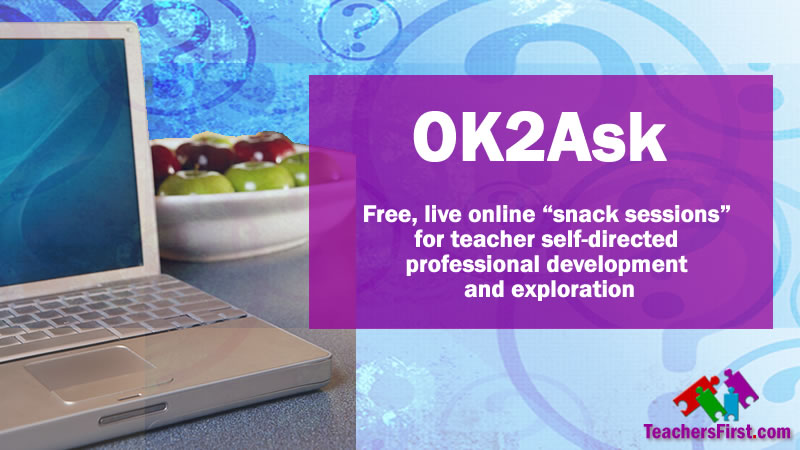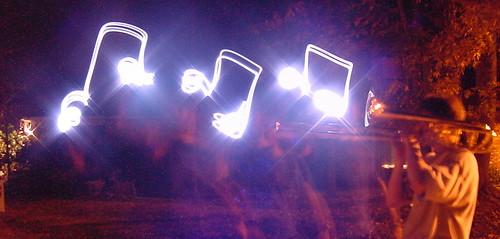 This is an open letter blog entry to a valued colleague because she is someone who aways responds,”Why not?” when I hatch some hare-brained scheme…and she adds her own hare-brain!
This is an open letter blog entry to a valued colleague because she is someone who aways responds,”Why not?” when I hatch some hare-brained scheme…and she adds her own hare-brain!
Donna,
Six years ago we were in the midst of doing something no one else had done (as far as we knew and still know now). We were about to take six very bright kids to Alaska in winter and have them teach their peers via the web using what they had taught themselves through the web and real-life contacts in Alaska. Sounds old hat now. Except that in 2002-03, there were no wikis. There were no photo and video sharing sites. We did it all by figuring out solutions using available tools and begging for freebies. If we’d had wikis and Youtube…..my goodness!
Roll the clock six years. Read what the MacArthur Foundation says this week about time spent online and how kids learn today — really about how all of us should consider re-visioning what education is, based on how kids are learning. My electronic “quote wall” pulled from the summary:
change the dynamics of youth-adult negotiations over literacy, learning, and authoritative knowledge?
“interest-driven” networks
Self-Directed, Peer-Based Learning
“geek out”
specialized knowledge groups of both teens and adults
gaining reputation among expert peers
erases the traditional markers of status and authority
outcome emerges through exploration, in contrast to classroom learning that is oriented toward set, predefined goals.
skills that youth value are highly variable depending on what kinds of social groups they associate with. This diversity in forms of literacy means that it is problematic to develop a standardized set of benchmarks to measure levels of new media and technical literacy.
New role for education? ….What would it mean to really exploit the potential of the learning opportunities available through online resources and networks?
So, Donna, if kids really learn by poking around online themselves — and we know they do– and have entirely separate networks of experts (and ways to define “expert”) on topics we, as the “adults,” do not even know about…why not invite a dozen or so of them to redesign their education and see how well they could meet two masters: the legal one that says they have to meet certain “standards” and the personal master within themselves. I would hypothesize that given the right environment, the right tools, some no-B.S. adult mentors, and the motivation that they might actually be able to affect change, you and I could guide a group of HS kids to redesign learning into something meaningful to them. Here is the beginning of a framework of sorts:
To start, give the kids the standards, explaining that this is the part over which we have no control-yet. Tell them to find the “expert network” to learn about it themselves (and prove it).
The kids proceed to: (with the side-by-side participation of “teachers,” as needed and specified by law)
- Find the source/community of experts
- Verify the knowledge level of the source Who else links to him/her? How can you tell he/she is good? Do you find this source referenced over and over again? Can you find out anything about him/her? Would you trust him to fix/use your computer? etc.
- Engage and question
- Participate and interact with their own questions and exploration
- Show learning—turn in the URL from the online community where their learning “shows”—along with a list of the questions they still want to know.
- Show where this fits into the “standards”- the kids do the alignment
- Maybe keep a personal RSS Reader organized by academic topics?
They end up as content experts in their own right, with a vast network of places to return and learn more…including through their peers who are also engaged at various stages in the same process. Most importantly, the kids are involved in actually defining and evaluating this very cyclical process: Does it work? What should we change? What is B.S.? What is cool?
So, Donna, looking back on 2002-03, isn’t this what the better participants in CV/AK did? As they found connections to prescribed curriculum, they went off into their own expert networks to learn what “fit” for them—and what they thought would fit for their peers.
We won’t talk about the “management issues” of watching over 150 kids instead of 12…that’s another day on Think Like A Teacher. That’s an outdated concept, too…
Not bad for something hatched on a Friday. After all, CV/AK came out of a breakfast at (now defunct) George’s.
Why not?








 Today I am listening to
Today I am listening to  This is an open letter blog entry to a valued colleague because she is someone who aways responds,”Why not?” when I hatch some hare-brained scheme…and she adds her own hare-brain!
This is an open letter blog entry to a valued colleague because she is someone who aways responds,”Why not?” when I hatch some hare-brained scheme…and she adds her own hare-brain!

